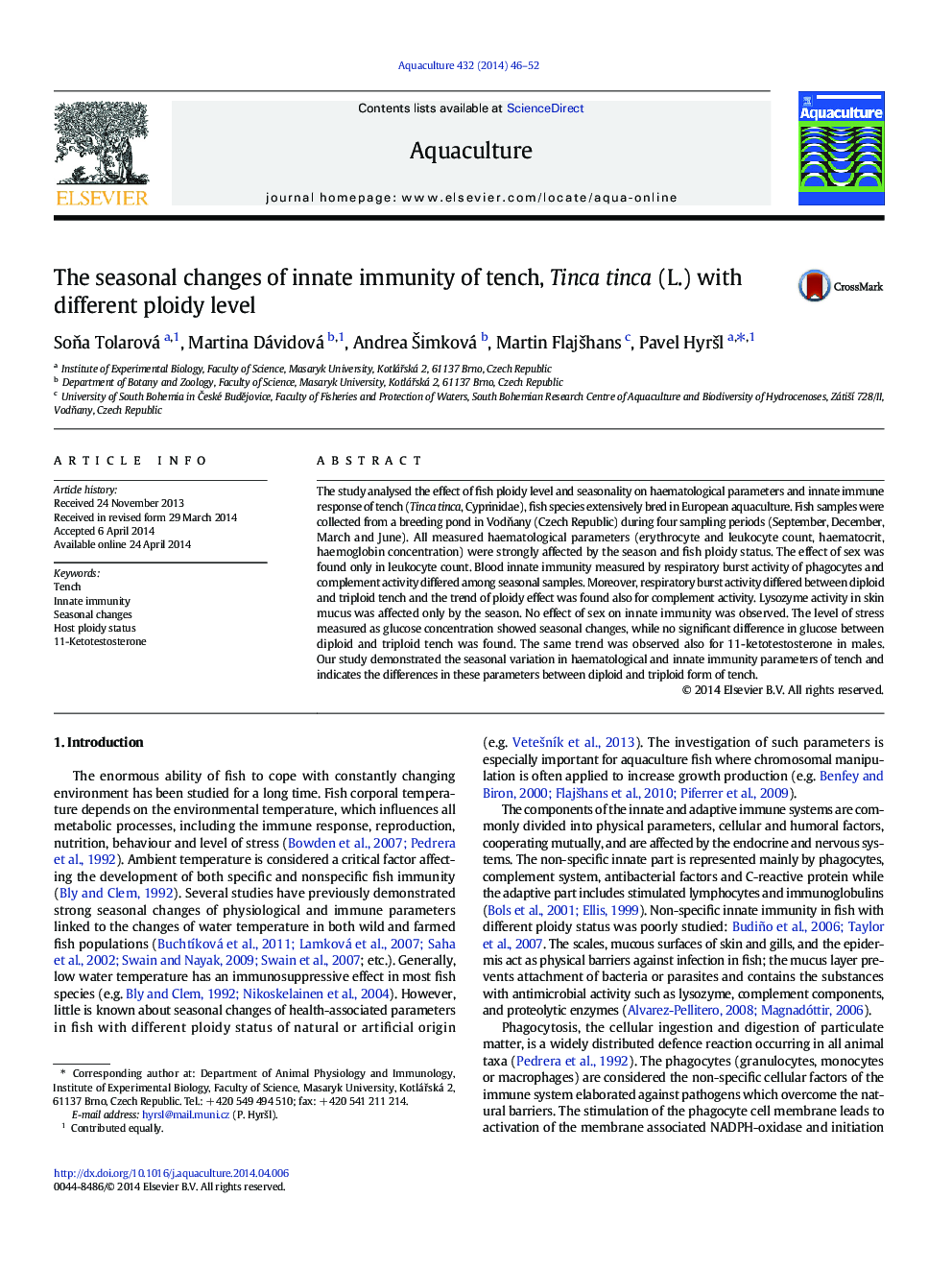| Article ID | Journal | Published Year | Pages | File Type |
|---|---|---|---|---|
| 2421768 | Aquaculture | 2014 | 7 Pages |
•We bring evidence of effect of ploidy and seasonality to health status of the tench.•Ploidy was the important factor determining higher haematological values in diploids.•Respiratory burst activity of phagocytes was determined by fish ploidy and season.•Complement activity differed significantly among seasonal samples but not by ploidy.•Lysozyme activity in skin mucus was affected by the season but not the ploidy.
The study analysed the effect of fish ploidy level and seasonality on haematological parameters and innate immune response of tench (Tinca tinca, Cyprinidae), fish species extensively bred in European aquaculture. Fish samples were collected from a breeding pond in Vodňany (Czech Republic) during four sampling periods (September, December, March and June). All measured haematological parameters (erythrocyte and leukocyte count, haematocrit, haemoglobin concentration) were strongly affected by the season and fish ploidy status. The effect of sex was found only in leukocyte count. Blood innate immunity measured by respiratory burst activity of phagocytes and complement activity differed among seasonal samples. Moreover, respiratory burst activity differed between diploid and triploid tench and the trend of ploidy effect was found also for complement activity. Lysozyme activity in skin mucus was affected only by the season. No effect of sex on innate immunity was observed. The level of stress measured as glucose concentration showed seasonal changes, while no significant difference in glucose between diploid and triploid tench was found. The same trend was observed also for 11-ketotestosterone in males. Our study demonstrated the seasonal variation in haematological and innate immunity parameters of tench and indicates the differences in these parameters between diploid and triploid form of tench.
